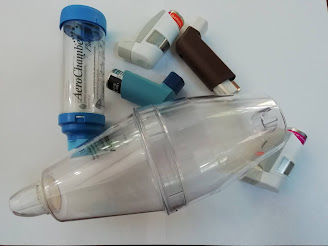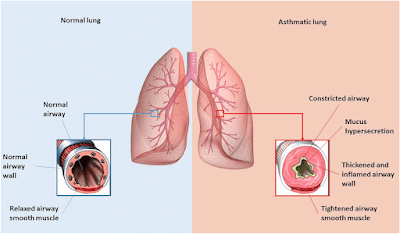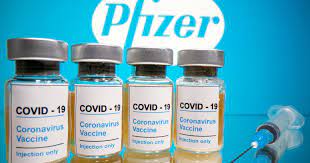Recently diagnosed with asthma?
There is never a good time to get diagnosed with asthma. And if you have recently been diagnosed with asthma, in these days of Covid-19 where patients are being managed with as little in-person contact as possible, the situation gets even more difficult.
What
should you do if you have recently been diagnosed with asthma?
Keep a diary of any bad day and begin to build a picture of
what triggers your asthma attack. See our article on how to know your asthma
triggers here
 Use your preventer inhaler as prescribed by the doctors.
You may need to keep one handy at all times. Imagine if you forgot to take your
inhaler before leaving the house for work in the morning (assuming you are not
homeworking like everyone else right now)! You don’t want to get to the office
and then have to decide whether to drive back home or miss your morning dose
entirely. Having a spare preventer inhaler in your car or in your office locker
certainly helps, believe me.
Use your preventer inhaler as prescribed by the doctors.
You may need to keep one handy at all times. Imagine if you forgot to take your
inhaler before leaving the house for work in the morning (assuming you are not
homeworking like everyone else right now)! You don’t want to get to the office
and then have to decide whether to drive back home or miss your morning dose
entirely. Having a spare preventer inhaler in your car or in your office locker
certainly helps, believe me.
Keep a close eye on your blood oxygen saturation levels: This means you should measure your blood SpO2 levels as often as needed. And we recommend you use a certified Oximeter if you have one at home or go to your GP / use a medical grade Oximeter. You want to establish what your ‘normal’ range of SpO2 values are on a good dayJ! This would allow you in future know when your values are not what they should be, especially on days when you are feeling under the weather. Remember that ‘normal’ values vary slightly from person to person.
You may be wondering why AsthmApp as a company that produces mobile health Apps is not recommending using a mobile App to directly measure your blood oxygen saturation level? The fact is, the science is yet clear how accurate mobile Apps are in measuring correctly SpO2 levels. That is why we offer our Customers opportunities to buy FDA and CE approved Oximeters at discounted rates. Click here to register your interest in our discounted Oximeters.
Oxford University in their recent article (2020) said, ‘there is no evidence that any smartphone technology is accurate for the clinical measurement of Oxygen saturation. The scientific basis of such technologies is questionable. Oxygen saturated levels obtained from such technologies should not be trusted for clinical purposes.’ We couldn’t agree more with the University of Oxford. Our App is designed such that you can manually input your oxygen saturation levels from Oximeters.
And with time, you can monitor your saturation levels and know what is normal for you and what will be abnormal or cause for concern. The more data you can record and store on your record, the better a picture you can build of your respiratory health. And if you feel unwell or a little off colour, grab your oximeter and do a quick check. If in doubt or you are concerned, speak to the health professionals who are trained to advise in such situations. Measure your blood oxygen saturation levels and input them into our App.
Get an asthma action plan – you should ask your doctor for a plan if they have not drafted one for you yet. You need to know how to spot when your asthma is flaring up and what to do when that happens. What phone number do you call and when do you call them? The name of your preventer inhaler and emergency inhaler along with the dosage will be written down in your plan. And lest we forget, your doctor should also be scheduling you for a regular review, at worst, once a year to keep an eye on things and check that you are doing what you are meant to be doing. And really, if you don’t see your doctor in a year regarding your asthma, you really are doing well. So keep doing your best to stay healthy and well.
Check with your doctor /
Nurse that you are using your inhalers correctly. It may be that something as simple as a change of inhaler technique could help
you manage your asthma better. Some people, particularly teenagers don’t
like to use spacers as they find them embarrassing.
But really, what is more embarrassing is finding out you need critical care
because you have not been using your inhalers correctly. So check and be sure you are using your inhalers at the right dosage
and in the correct manner. You will be surprised the percentage of
asthmatics who do not know how to use their inhalers correctly.
Better asthma management is possible and you can live to your maximum potential by taking good care of yourself. We are here to help and support you. Good luck with your diagnosis and let us know how you get on over time.




Comments
Post a Comment